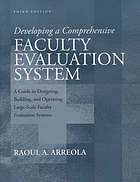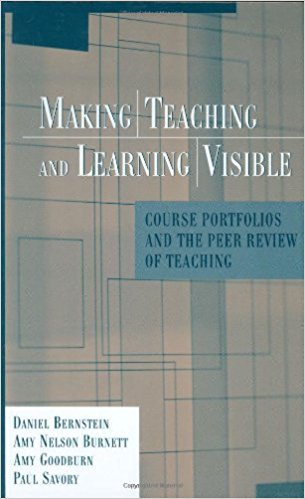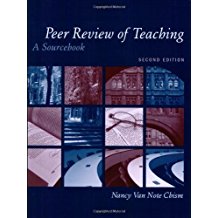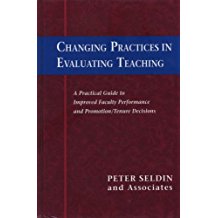|
Arreola, R. A. (2007). Developing a comprehensive faculty evaluation system: A guide to designing, building, and operating large-scale faculty evaluation systems (3rd ed.). Bolton, MA: Anker Publications. This handbook provides a systematic, proven approach for developing a fair and consistent faculty evaluation system that can be adapted to the unique values, needs, missions, traditions, and overall culture of any institution. Available through OSU Libraries. |
|
|
Bernstein, D. (2006). Making teaching and learning visible: Course portfolios and the peer review of teaching. Bolton, Mass: Anker Pub. Co. With higher education s refocus over the last three decades on bringing greater recognition and reward to good teaching, the idea of peer review has gained popularity. One tool for documenting and reflecting on the quality of teaching and student learning is a course portfolio. Available through OSU Libraries. |
|
|
Chism, N. V. N., & Chism, G. W. (2007). Peer review of teaching: A sourcebook. Bolton, MA: Anker Pub. Co. Peer review, when done well, has been seen to reinvigorate teaching, provide detailed appraisal, and enrich evidence on which decisions about compensation and promotion are made. In this concise, yet comprehensive book, Nancy Van Note Chism offers a framework for the use of peer review; lists the tasks involved in setting up a peer-review program; and provides guidelines, protocols, checklists, and reproducible rating forms for reviewing course materials, classroom performance and non-course teaching activities, such as overall departmental teaching efforts and teaching portfolios. She addresses institution-level issues: policies about peer review; responsibilities of administrators, reviewers, and reviewees; and the components of an effective peer-review system. Available through OSU Libraries. |
|
|
In Klopper, C., & In Drew, S. (2015). Teaching for learning and learning for teaching: Peer review of teaching in higher education. Rotterdam: Sense. Teaching for Learning and Learning for Teaching focuses on the emerging global governmental and institutional agenda about higher education teaching quality and the role that peer review can play in supporting improvements in teaching and student outcomes. This agenda is a pervasive element of the further development of higher education internationally through activities of governments, global agencies, institutions of higher education, discrete disciplines, and individual teachers. Many universities have adopted student evaluations as a mechanism to appraise the quality of teaching. Available in eBook from OSU Libraries. |
|
|
Seldin, P. (1999). Changing practices in evaluating teaching: A practical guide to improved faculty performance and promotion/tenure decisions. Bolton, Mass: Anker Publishing. This book contains a wealth of material on current evaluation practices and realistic suggestions for upgrading methods and procedures. Seldin and his associates cover every aspect of the evaluation of teaching, research, and service--from gaining genuine faculty support to collecting and assessing various kinds of data--revealing what works and what does not. Available from OSU Libraries. |




